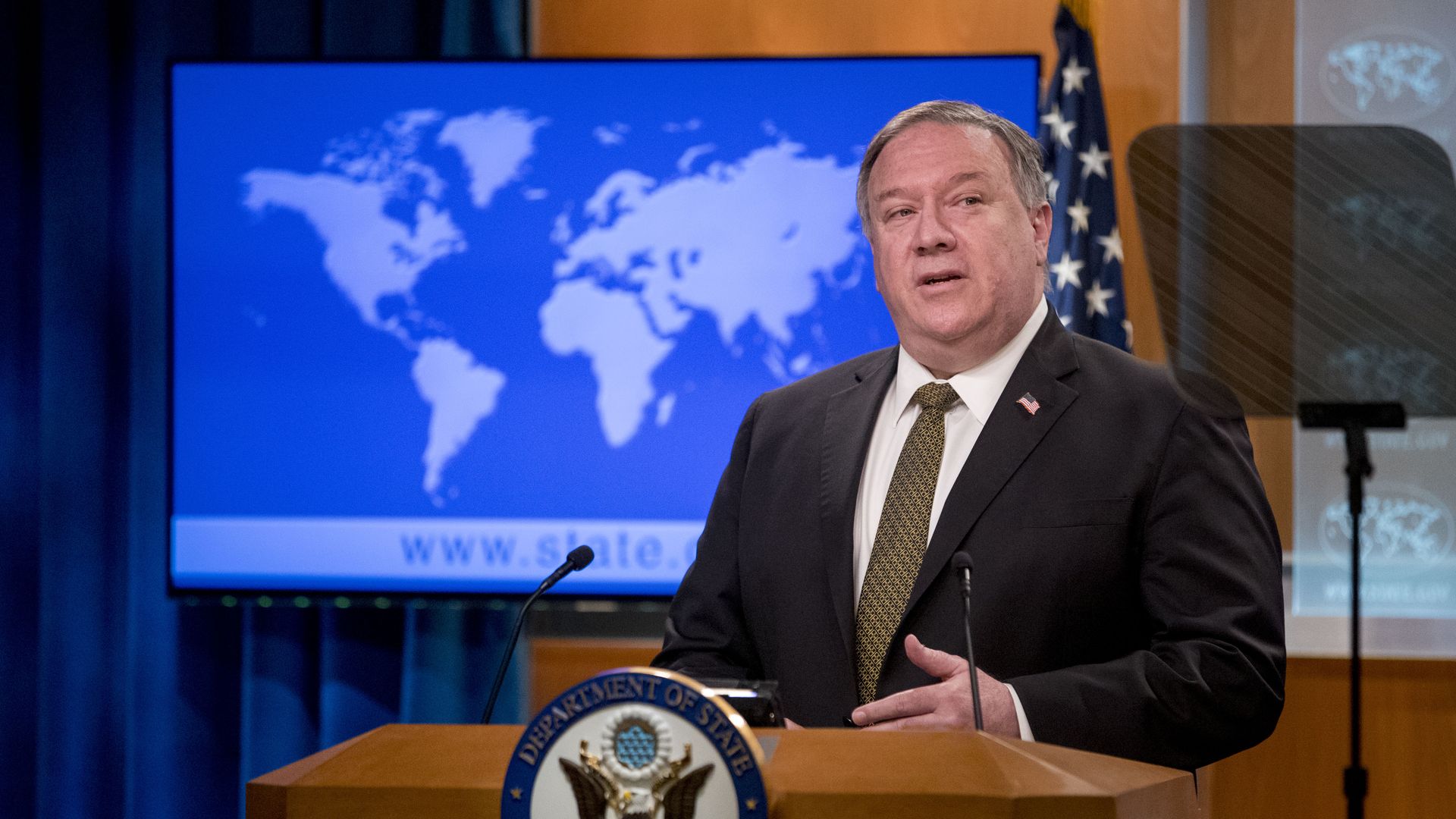Pompeo announces visa restrictions on some Huawei employees
Add Axios as your preferred source to
see more of our stories on Google.

Photo: Andrew Harnik/Pool/AFP via Getty Images
The U.S. will impose visa restrictions on certain employees of Chinese telecom Huawei and other companies that "provide material support to regimes engaging in human rights violations globally," Secretary of State Mike Pompeo said Wednesday.
Why it matters: The Trump administration's latest escalation against Huawei, which U.S. intelligence officials view as a threat to national security due to its ties to the Chinese military, comes the day after the U.K. announced it will no longer allow the telecom to access its 5G network.
- The U.K. decision was a big win for the Trump administration, which has sought to firewall Huawei from networks around the world while putting intense pressure on its closest ally to make such a move.
- Pompeo commended the decision and announced he would visit the U.K. and Denmark, which has also banned Huawei from its 5G network, next week.
What he's saying: "The tide is turning," Pompeo said. "I think the work that's been done all across the world is now making clear to everyone that there is a real security risk."
- "Now, every nation is simply asking the question, how do you do it?"
- "What are the commercial impacts, how quickly can you move in that direction, and how do you ensure we have available, cost-effective solutions that don't subject our people to the risk that comes from having this infrastructure inside our country."
What to watch: In recent months, Beijing has met the Trump administration's embrace of reciprocity with a clear tit for tat. The Chinese government is likely to respond with corresponding restrictions of its own.
The big picture: Pompeo declined to answer when asked by a reporter whether he considers the Chinese government to be "evil," as he has labeled Iran, but stressed that China's human rights violations are the "stain of the century."
